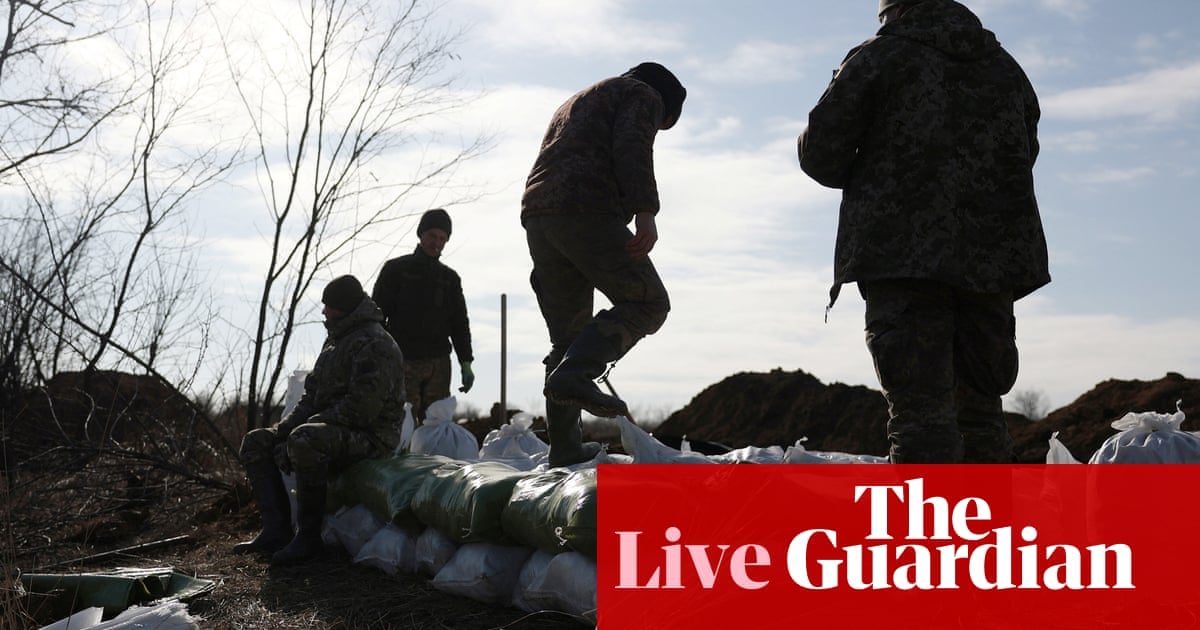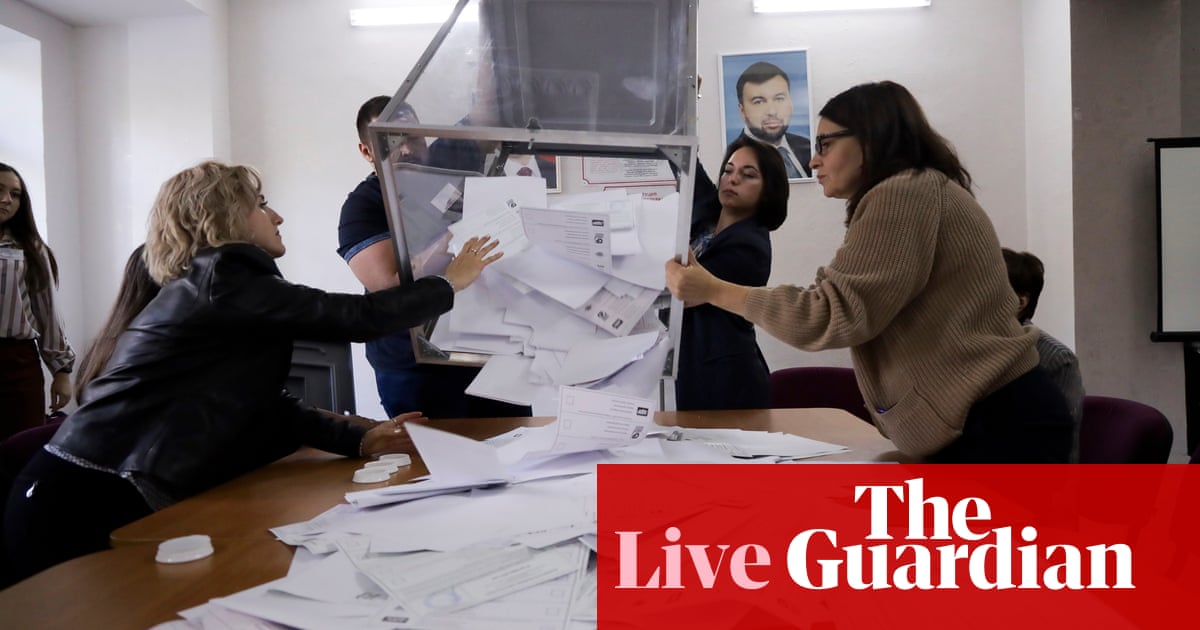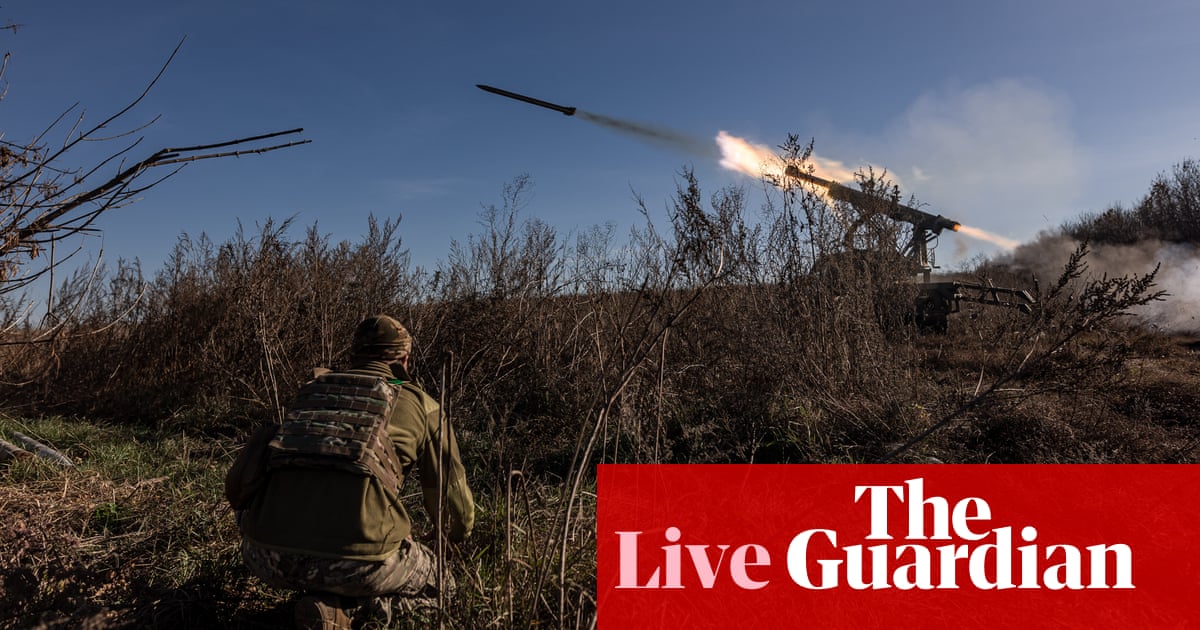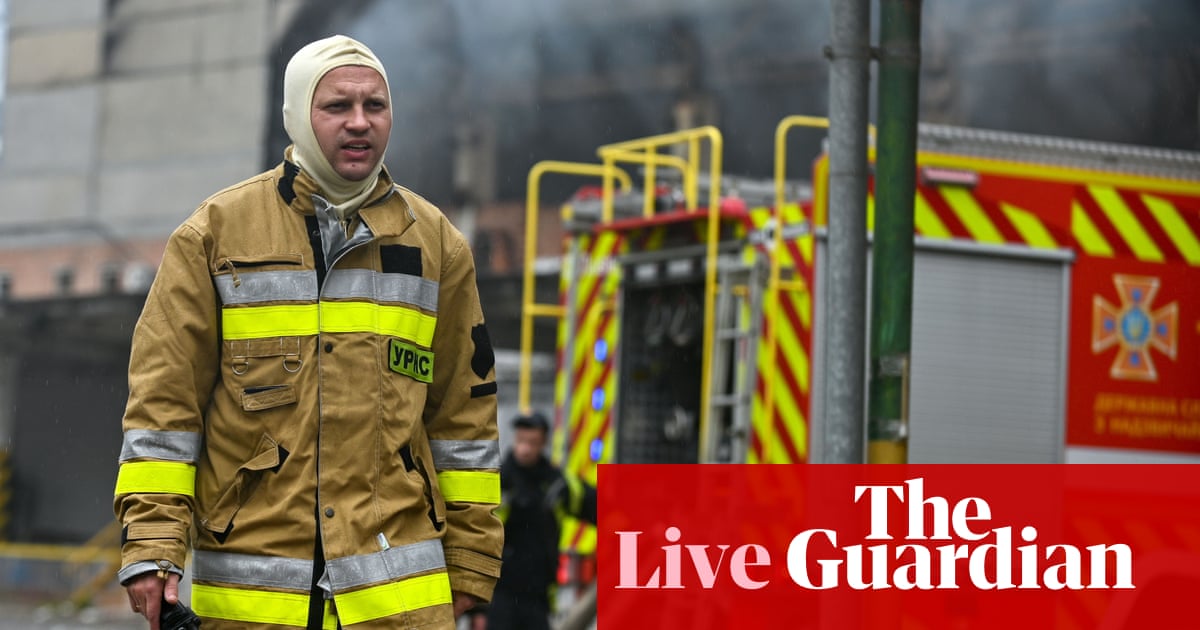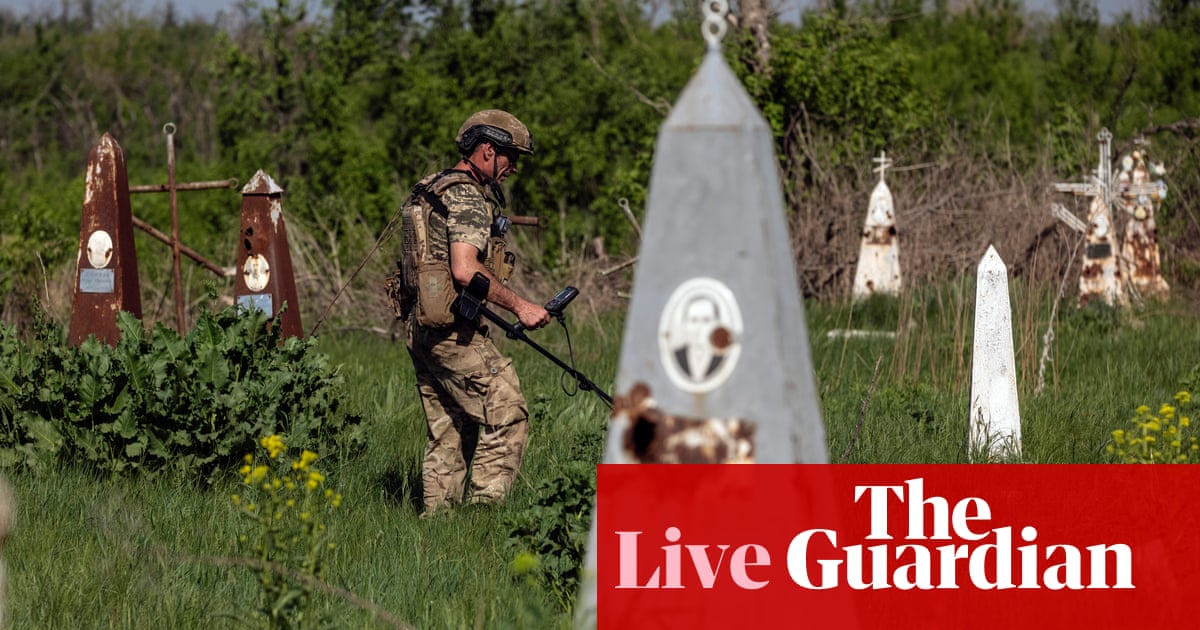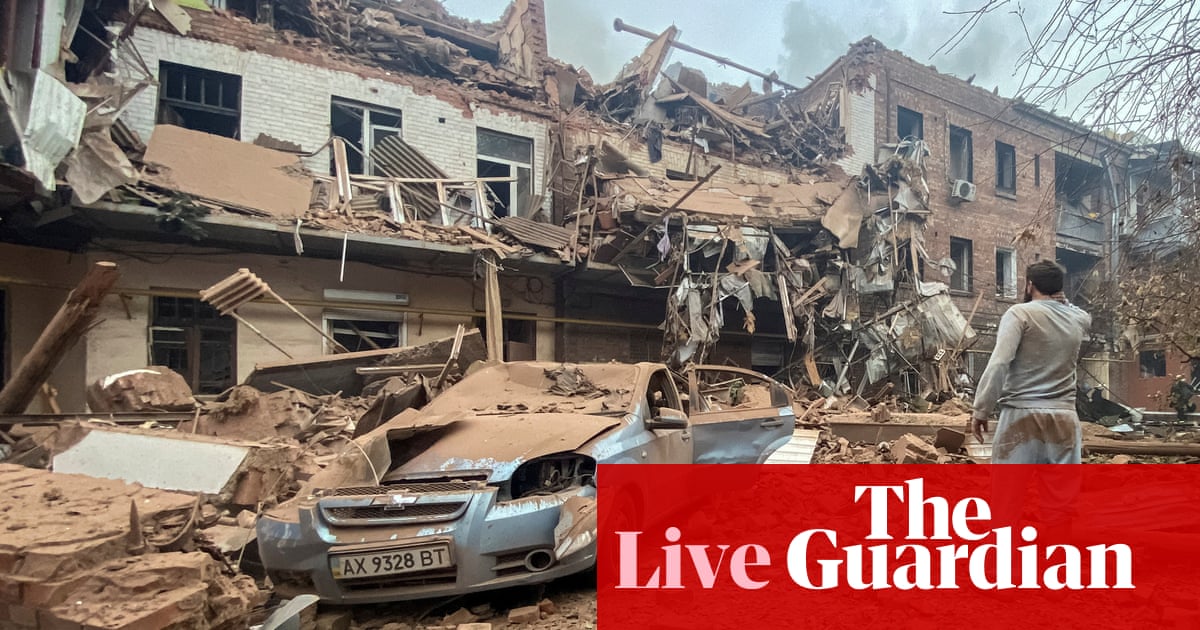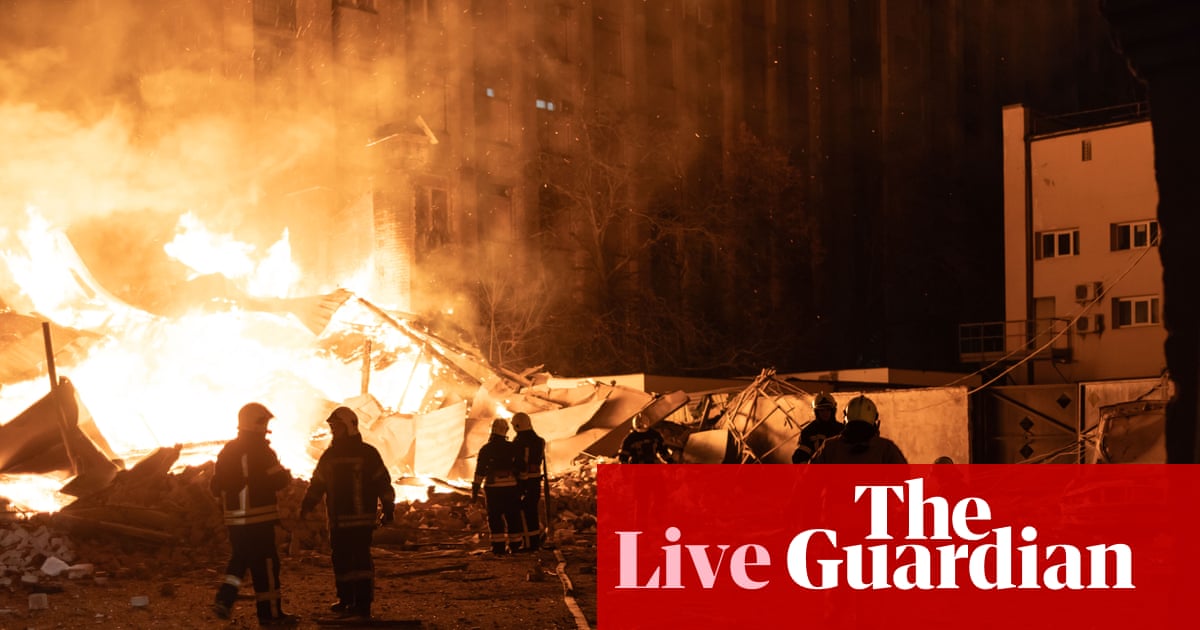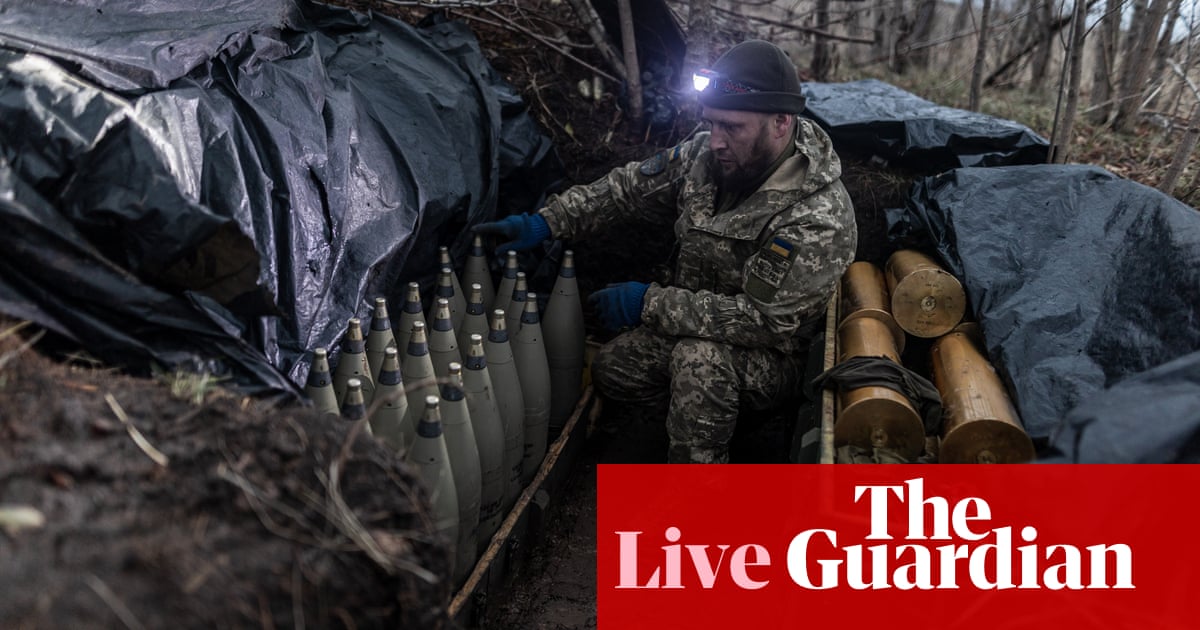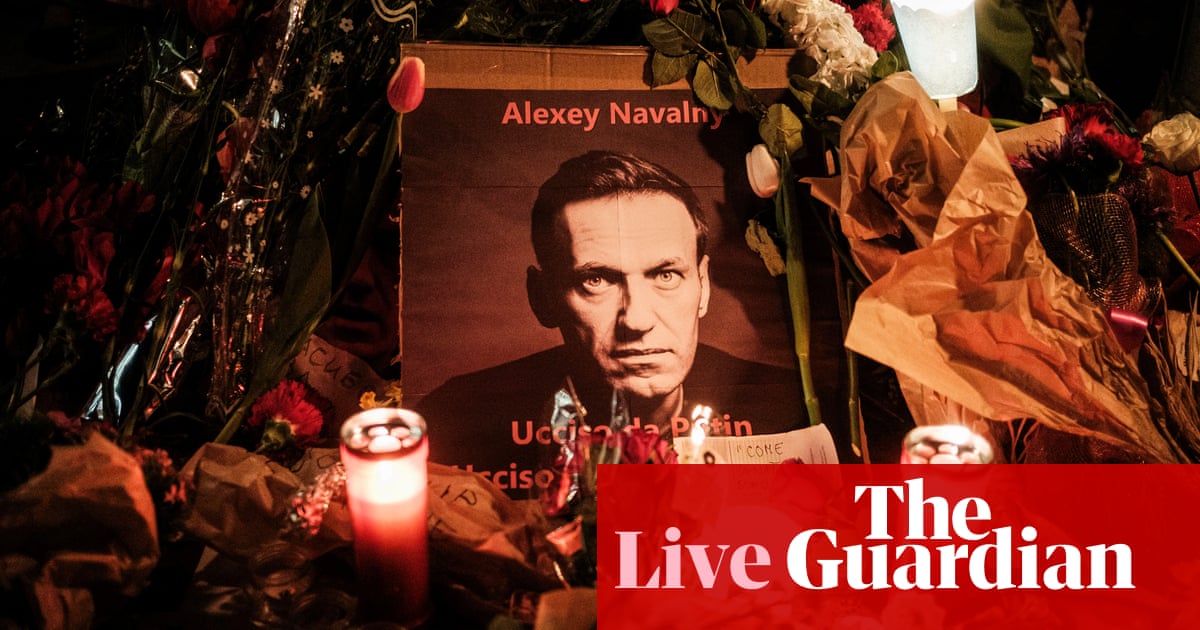
Head of Germany"s far-right AfD condemns "theatrics" over Navalny"s death
The head of Germany’s far-right populist AfD, has condemned what he has called the “theatrics” around the death of Russian opposition activist Alexei Navalny, claiming it has been exploited for political means.
Tino Chrupalla said the speech of Navalny’s widow Yulia Navalnaya at the Munich Security Conference last weekend had been “stage managed”, implying that it had been instrumentalised by European Commission president Ursula von der Leyen to shore up her own support having just launched her own bid for reelection.
Speaking in Berlin, Chrupalla said: “It is really striking that the first thing Yulia Navalnaya does after the death of her husband, is to speak to the Munich Security Conference. This sort of stage management should give us pause for thought.”
“When I see the widow of Mr Navalny with Ursula von der Leyen, you really have to ask yourself, ‘who does such a performance benefit?’ It is obvious that Navalny’s death is being exploited.”
Russia has accused Germany of interfering in its domestic politics after the government called on it to explain Navalny’s death.
Chrupalla said he found it “unbearable” the extent to which Putin had been blamed for Navalny’s death. “People are speaking about ‘murder’, and other things, even though nothing is known, even though there has not even been an investigation yet,” he said in Berlin.
The AfD’s pro-Kremlin position is well documented, though Chrupalla’s is seen to be closer than most. Last May he drew criticism after attending a reception at the Russian embassy.
The AfD has been in the spotlight over the past two months, after revelations that members had participated in a meeting at which plans for the mass deportation of foreigners was discussed.
Closing summary
It has just gone 6pm in Kyiv and 7pm in Moscow. We will be closing this blog soon, but you can stay up to date on the Guardian’s Russia and Ukraine coverage here.
Here is a recap of today’s latest developments:
The EU on Wednesday approved its 13th package of sanctions against Russia. The new package, which will formally be approved in time for the second anniversary of the start of Russia’s invasion of Ukraine on 24 February, will see nearly 200 entities and individuals added to the list but no fresh sectoral measures. European Commission president Ursula von der Leyen welcomed the agreement by the EU’s 27 countries and said it would further cut “Russia’s access to drones”. “We must keep degrading Putin’s war machine,” she wrote on X.
Multiple diplomats said new EU sanctions against Russia included adding three mainland Chinese firms to a list of companies that EU businesses were banned from dealing with. The firms – the first in mainland China to be targeted by the measures – were accused of involvement in supplying sensitive military technology to Russia. Firms in Turkey and India were also included, as the EU increasingly targets third countries for helping Moscow circumvent its sanctions.
Diplomats said the EU also imposed an asset freeze and visa ban on North Korea’s defence minister Kang Sun Nam for the supply of ballistic missiles to Moscow, as part of its new package of EU sanctions against Russia.
The latest round of EU sanctions against Russiaalso includes an extensive section centring on the illegal abduction of Ukrainian children to Crimea, Belarus and Russia. On the draft list that was approved by EU representatives were a series of men and women said to be directly involved.
The head of Germany’s far-right populist AfD, has condemned what he has called the “theatrics” around the death of Russian opposition activist Alexei Navalny, claiming it has been exploited for political means. Tino Chrupalla said the speech of Navalny’s widow Yulia Navalnaya at the Munich Security Conference last weekend had been “stage managed”, implying that it had been instrumentalised by European Commission president Ursula von der Leyen to shore up her own support having just launched her own bid for reelection.
The UK on Wednesday imposed sanctions on six individuals in charge of the Arctic penal colony where Russian opposition leader Alexei Navalny died last week. The UK is the first country to impose measures in response to the politician’s death, which has been widely blamed on the Kremlin by western countries, the UK Foreign Office said.
Italy’s deputy prime minister Matteo Salvini, once an outspoken admirer of Russian president Vladimir Putin, has ignited controversy with his recent remarks on the death of Russian opposition leader Alexei Navalny. Salvini, leader of far-right League party asserted it was “up to Russian doctors and judges” to determine the cause of Navalny’s death.
In response to Salvini’s comments, the EU’s foreign policy chief Josep Borrell highlighted a joint declaration by EU member states, including Italy, assigning responsibility for Navalny’s demise to president Putin and Russian officials. Borrell emphasised the significance of government-approved statements and urged officials to align with their country’s official positions.
Ursula von der Leyen, the president of the European Commission, on Wednesday ruled out working with Russian leader Vladimir Putin’s “friends” in the next EU parliament. “Those who are defending our values against Putin’s friends, these are the ones with which I want to work,” von der Leyen told journalists in Brussels.
A court in the Russia will next month hear a case brought by the mother of dead opposition leader Alexei Navalny, his allies said on Wednesday. Lyudmila Navalnaya has travelled to the remote IK-3 prison where her son died, but since Saturday, when she arrived, she has been prevented from seeing his body. State news agency Tass reported that the court had received a complaint on “illegal acts” and that the hearing would take place behind closed doors. Navalny’s team said on social media that the court in the Arctic city of Salekhard would consider the case on 4 March – more than two weeks after Putin’s opponent died.
Barely 10% Europeans believe Ukraine can defeat Russia, even though support for Ukraine among Europeans remains broad, according to an EU-wide survey – with some form of “compromise settlement” seen as the most likely end point.
Ukraine’s army on Wednesday denied that it had lost Krynky, its bridgehead on the Russian-occupied side of the Dnipro river, a day after Russia’s defence minister said the area had been taken. It claimed Russian forces made an assault on Krynky but suffered “significant losses” and retreated. AFP was not able to verify the claims. Meanwhile, Russian defence minister Sergei Shoigu told president Vladimir Putin on Tuesday that Krynky had been “cleared” of Ukrainian forces.
Polish police said on Wednesday they were investigating a banner at a farmers’ protest calling on the Russian president, Vladimir Putin, to get Ukraine “in order”, which sparked anger in Kyiv. On Wednesday, Poland’s minister in charge of the secret services, Tomasz Siemoniak, denounced the “scandalous” banner as a “provocation”. In recent protests, Polish farmers have blocked roads to the border and dumped Ukrainian grain from trucks and freight cars.
Iran has provided Russia with a large number of powerful surface-to-surface ballistic missiles, six sources told Reuters, deepening the military cooperation between the two US-sanctioned countries. Iran’s defence ministry and the Revolutionary Guards – an elite force that oversees Iran’s ballistic missile programme – declined to comment on Reuters’ report. Russia’s defence ministry did not immediately respond to a request for comment either.
Finland has said it has launched almost 800 investigations into potential sanctions busting activities on its border with Russia in the two years since Putin invaded Ukraine. The border with Russia has recently been closed because of irregular migration which the Finns believe was orchestrated by Russia from St Petersburg. It has meant train and shipping transport are now the focus of sanctions enforcement in Finland.
Nato secretary-general Jens Stolenberg said he believes the best way to honour the memory of Alexei Navalny is to ensure a Russian defeat in the Ukraine war. Speaking to Radio Free Europe in Brussels, Stolenberg said: “I strongly believe that the best way to honour the memory of Alexei Navalny is to ensure that president Putin doesn’t win on the battlefield, but that Ukraine prevails.”
Russia’s capture of Avdiivka in eastern Ukraine has alarmed people in nearby towns and many are now leaving for safer areas after hunkering down for months from constant hostile fire, reports Reuters. According to the news agency, most of those fleeing are elderly and in many cases barely mobile, and are being helped by an evacuation charity called East SOS.
The Romanian foreign ministry summoned the Russian ambassador over the death of Russian opposition leader Alexei Navalny. The ministry underlined the need for a transparent, independent investigation of Navalny’s death, and said Russian authorities had a moral obligation to return his body to his family.
Russia lacks sufficient domestic ammunition production to meet its needs in its war on Ukraine but Putin has not given up his hopes of subjugating the country, western officials told Reuters on Wednesday. “Russia’s domestic ammunition production capabilities are currently insufficient for meeting the needs of the Ukraine conflict,” one official said. Despite the problems, Putin’s aims remained unchanged, the officials cautioned.
The Czech foreign ministry summoned the Russian ambassador over the death of Russian opposition leader Alexei Navalny, CTK news agency said on Wednesday.
Russia’s top general, chief of the general staff Valery Gerasimov, visited troops fighting in the war in Ukraine to discuss the next steps after the taking the town of Avdiivka. Gerasimov was shown awarding medals to Russian troops involved in taking Avdiivka..
Russia launched 19 attack drones at Ukraine overnight and six missiles, with the Ukrainian air defence systems destroying 13 of the drones and one missile, Ukraine’s air force said on Wednesday. The air force also said that it destroyed a Kh-59 air-to-surface guided air missile in the Poltava region. Reuters could not independently verify the Ukrainian air force’s report. There was no immediate comment from Russia.
US secretary of state Antony Blinken and Russian foreign minister Sergei Lavrov will face each other across the table for the first time since they spoke briefly face-to-face at last year’s foreign ministers’ meeting in New Delhi, as foreign ministers from the G20 group of nations gather in Rio de Janeiro on Wednesday.
The UK prime minister, Rishi Sunak said the UK and its allies were considering all options to respond to the death of Alexei Navalny. During Wednesday’s prime minister’s questions session (PMQs) Sunak told the House of Commons: “Together with our allies we are considering all options to hold Russia and Putin to account and this morning we sanctioned those running the prison where Alexei Navalny’s body still lies.” Leader of the opposition, Keir Starmer told MPs Putin had stolen “the future and democracy of the Russian people”.
Russia is the main international security threat to Sweden, and foreign enemies may try to exploit an elevated risk of extremist violence from Islamists and the far-right, the Swedish Security Service said on Wednesday. “We must all learn to live with the serious security situation,” Charlotte von Essen, head of the Security Service, told a news conference. Sweden has abandoned centuries of neutrality and applied to join Nato since Russia invaded Ukraine.
The BBC Russian Service and news outlet Mediazona have confirmed the identity of about 45,000 Russian soldiers who died in Ukraine since the invasion began in February 2022. The issue of military casualties is extremely sensitive in both countries. Russia has banned criticism of the conflict and no official figures have been released since 2022.
Andrey Morozov, a prominent pro-war Russian blogger, has reportedly died by suicide following outrage over a post in which he claimed that the Russian army lost 16,000 soldiers during the capture of the eastern Ukrainian city of Avdiivka.
The White House has said it is seeking information after Russia announced it had arrested a dual US-Russian citizen on treason charges, accusing her of collecting funds for Ukrainian organisations and openly opposing the Russian war in Ukraine. A Russian legal NGO, First Dept, said the woman, named by the media in Russia as Ksenia Khavana, may stand accused of transferring $51 (£40) to a Ukrainian charity on 24 February 2022, the day Vladimir Putin launched his invasion of Ukraine.
The Republican senator Lindsey Graham, a key ally of Donald Trump, has been added to a list of “terrorists and extremists” kept by Russia’s state financial monitoring agency. Tass, the state-run news agency, first reported the move by Rosfinmonitoring, which allows authorities to freeze Russian bank accounts, though in Graham’s case is likely to be chiefly symbolic.
The BBC Russian Service and news outlet Mediazona have confirmed the identity of about 45,000 Russian soldiers who died in Ukraine since the invasion began in February 2022, reports AFP.
The issue of military casualties is extremely sensitive in both countries. Russia has banned criticism of the conflict and no official figures have been released since 2022.
“The BBC, together with Mediazona … and a team of volunteers managed to establish the names of 45,123 Russian militaries who died in the war in Ukraine since February 2022,” the report said.
It only included the names of soldiers publicly identified in open-source data – mainly obituaries – and warned the real toll may be twice as high.
“Two-thirds of the dead we have identified had no links to the army prior to the invasion: volunteers, mobilised, prisoners and private company recruits,” the BBC’s Russian language service said.
After over a year of grinding trench warfare that failed to yield territorial gains for either Moscow or Kyiv, the Kremlin is ramping up deployments to the front.
Russian president Vladimir Putin rarely acknowledges setbacks on the battlefield, framing the almost two-year war as a battle for Russia’s survival in a bid to rally patriotism.
Ukraine also keeps its military losses and casualties secret, although analysts believe they number in the tens of thousands after two years of fighting.
Russia arrests US dual national over alleged $51 Ukrainian charity donation
The White House has said it is seeking information after Russia announced it had arrested a dual US-Russian citizen on treason charges, accusing her of collecting funds for Ukrainian organisations and openly opposing the Russian war in Ukraine.
A Russian legal NGO, First Dept, said the woman, named by the media in Russia as Ksenia Khavana, may stand accused of transferring $51 (£40) to a Ukrainian charity on 24 February 2022, the day Vladimir Putin launched his invasion of Ukraine. She faces up to 20 years in prison.
Russia’s FSB security agency reported on Tuesday that it had detained a 33-year-old woman from Los Angeles who holds dual citizenship. Reports said she had attended the Ural Federal University in Ekaterinburg and later married an American citizen and moved to the US.
Andrey Morozov, a prominent pro-war Russian blogger, has reportedly died by suicide following outrage over a post in which he claimed that the Russian army lost 16,000 soldiers during the capture of the eastern Ukrainian city of Avdiivka.
Morozov, who went by the pseudonym Murz on Telegram, was an ultra-nationalist commentator who fought alongside Russian-backed separatists in eastern Ukraine in 2014 and participated in Russia’s full-scale invasion in 2022.
On Sunday, Morozov wrote to his 120,000 followers on Telegram that Russia lost 16,000 personnel and 300 pieces of armour during its months-long capture of Avdiivka. The post drew heavy criticism from senior Russian propagandists, who accused the blogger of “slandering the Russian defence ministry”.
Russia lacks sufficient domestic ammunition production to meet its needs in its war on Ukraine but Russian president Vladimir Putin has not given up his hopes of subjugating the country, western officials told Reuters on Wednesday.
Russia’s military industry is also struggling with the impact of sanctions, the officials said, adding that the country’s inability to access western components was undermining its ability to produce new systems and repair old ones.
The western officials’ summary of the situation comes as the Russia-Ukraine war enters its third year, with Russia in the ascendancy after taking control of the Ukrainian town of Avdiivka and amid warnings that Ukraine is also running out of ammunition.
“We do not believe Russia has a meaningful plan beyond continuing to fight in the expectation that Russian manpower and equipment numbers will eventually tell,” an official told Reuters, speaking on condition of anonymity.
Ukraine’s shortages of supplies has come into focus with its reliance on western support for money and equipment, especially with political wrangling in Washington holding up $61 bn in US aid.
Artillery shells are in short supply, with experts and soldiers on the frontline estimating that Russia’s artillery was now firing at five times the rate of Ukraine’s. However, the western officials said Russia too was suffering problems as sanctions hit military production hard, causing delays and putting up costs, meaning it could not keep up with the war’s demands.
A consequence was Moscow was requisitioning military equipment which had been intended for foreign allies, they said. Last March, the Indian air force said Russia had failed to deliver vital supplies it had committed to the Indian military because of the Ukraine war.
“Russia’s domestic ammunition production capabilities are currently insufficient for meeting the needs of the Ukraine conflict,” one official said. Despite the problems, Putin’s aims remained unchanged, the officials cautioned, saying they did not believe Russia had given up on it goals of subjugating Ukraine.
Iran has provided Russia with hundreds of ballistic missiles, Reuters sources say
Iran has provided Russia with a large number of powerful surface-to-surface ballistic missiles, six sources told Reuters, deepening the military cooperation between the two US-sanctioned countries.
Iran’s provision of about 400 missiles includes many from the Fateh-110 family of short-range ballistic weapons, such as the Zolfaghar, three Iranian sources said. This road-mobile missile is capable of striking targets at a distance of between 300 and 700 km (186 and 435 miles), experts say.
Iran’s defence ministry and the Revolutionary Guards – an elite force that oversees Iran’s ballistic missile programme – declined to comment on Reuters’ report. Russia’s defence ministry did not immediately respond to a request for comment either.
The shipments began in early January after a deal was finalised in meetings late last year between Iranian and Russian military and security officials that took place in Tehran and Moscow, one of the Iranian sources told Reuters.
An Iranian military official – who, like the other sources, asked not to be identified because of the sensitivity of the information – said there had been at least four shipments of missiles and there would be more in the coming weeks. He declined to provide further details.
Another senior Iranian official said some of the missiles were sent to Russia by ship via the Caspian Sea, while others were transported by plane. “There will be more shipments,” the second Iranian official said. “There is no reason to hide it. We are allowed to export weapons to any country that we wish to.”
UN security council restrictions on Iran’s export of some missiles, drones and other technologies expired in October. However, the US and EU retained sanctions on Iran’s ballistic missile programme amid concerns over exports of weapons to its proxies in the Middle East and to Russia.
A fourth source, familiar with the matter, confirmed to Reuters that Russia had received a large number of missiles from Iran recently, without providing further details.
White House national security spokesperson John Kirby said in early January the US was concerned that Russia was close to acquiring short-range ballistic weapons from Iran, in addition to missiles already sourced from North Korea. A US official told Reuters that Washington had seen evidence of talks actively advancing but no indication yet of deliveries having taken place. The Pentagon did not immediately respond to a request for comment by Reuters on the missile deliveries.
Ukraine’s top prosecutor said on Friday the ballistic missiles supplied by North Korea to Russia had proven unreliable on the battlefield, with only two of 24 hitting their targets. Moscow and Pyongyang have both denied that North Korea has provided Russia with munitions used in Ukraine.
By contrast, Jeffrey Lewis, an expert with the Middlebury Institute of International Studies at Monterey, said the Fateh-110 family of missiles and the Zolfaghar were precision weapons. “They are used to point at things that are high value and need precise damage,” said Lewis, adding that 400 munitions could inflict considerable harm. He noted, however, that Russian bombardments were already “pretty brutal”.
Von der Leyen rules out working with "Putin’s friends" in next EU parliament
Ursula von der Leyen, the president of the European Commission, on Wednesday ruled out working with Russian leader Vladimir Putin’s “friends” in the next EU parliament, two days after announcing she is seeking a second term.
“Those who are defending our values against Putin’s friends, these are the ones with which I want to work,” von der Leyen told journalists in Brussels alongside the leader of her centre-right European People’s Party, Manfred Weber.
According to AFP, von der Leyen was asked whether, if she wins a new term, she would cooperate with a parliamentary majority that included the right-wing European Conservatives and Reformists.
While noting that the bloc’s June elections would change the composition of political groups in the European parliament, she drew a red line regarding parties considered pro-Russian.
“It’s important that I work with pro-European, pro-Nato, pro-Ukrainian, clearly supporters of our democratic values, groups,” she replied. “Putin’s friends: impossible,” she said.
Polls suggest that far-right parties will make big inroads in the EU elections, rolling back left and centre-left parties. One of the parliament’s two hard-right blocs, Identity and Democracy (ID), includes a number of parties considered Russia-friendly. They include Marine Le Pen’s National Rally in France, and the League of Matteo Salvini in Italy.
The second right-wing group, the ECR, has until now taken an anti-Moscow line but that could soften if the Fidesz party of Hungary’s Russia-friendly leader Viktor Orbán joins it after the elections – as it is seeking to do.
Romanian foreign ministry summons Russian ambassador over Navalny"s death
The Romanian foreign ministry summoned the Russian ambassador over the death of Russian opposition leader Alexei Navalny, it said in a statement on Wednesday.
According to Reuters, the ministry underlined the need for a transparent, independent investigation of Navalny’s death, and said Russian authorities had a moral obligation to return his body to his family.
Italy’s deputy prime minister Matteo Salvini, once an outspoken admirer of Russian president Vladimir Putin, has ignited controversy with his recent remarks on the death of Russian opposition leader Alexei Navalny.
Salvini, leader of far-right League party asserted it was “up to Russian doctors and judges” to determine the cause of Navalny’s death.
In response to Salvini’s comments, the EU’s foreign policy chief Josep Borrell highlighted a joint declaration by EU member states, including Italy, assigning responsibility for Navalny’s demise to president Putin and Russian officials. Borrell emphasised the significance of government-approved statements and urged officials to align with their country’s official positions.
The League’s history of collaboration with Putin’s ruling party dating back to 2017 has raised concerns, prompting opposition parties to threaten a motion of no-confidence unless Salvini provides evidence he has cut ties with Putin.
Head of Germany"s far-right AfD condemns "theatrics" over Navalny"s death
The head of Germany’s far-right populist AfD, has condemned what he has called the “theatrics” around the death of Russian opposition activist Alexei Navalny, claiming it has been exploited for political means.
Tino Chrupalla said the speech of Navalny’s widow Yulia Navalnaya at the Munich Security Conference last weekend had been “stage managed”, implying that it had been instrumentalised by European Commission president Ursula von der Leyen to shore up her own support having just launched her own bid for reelection.
Speaking in Berlin, Chrupalla said: “It is really striking that the first thing Yulia Navalnaya does after the death of her husband, is to speak to the Munich Security Conference. This sort of stage management should give us pause for thought.”
“When I see the widow of Mr Navalny with Ursula von der Leyen, you really have to ask yourself, ‘who does such a performance benefit?’ It is obvious that Navalny’s death is being exploited.”
Russia has accused Germany of interfering in its domestic politics after the government called on it to explain Navalny’s death.
Chrupalla said he found it “unbearable” the extent to which Putin had been blamed for Navalny’s death. “People are speaking about ‘murder’, and other things, even though nothing is known, even though there has not even been an investigation yet,” he said in Berlin.
The AfD’s pro-Kremlin position is well documented, though Chrupalla’s is seen to be closer than most. Last May he drew criticism after attending a reception at the Russian embassy.
The AfD has been in the spotlight over the past two months, after revelations that members had participated in a meeting at which plans for the mass deportation of foreigners was discussed.
Nato chief says best way to honour Navalny is to ensure Russian defeat in Ukraine
Nato secretary-general Jens Stolenberg said he believes the best way to honour the memory of Alexei Navalny is to ensure a Russian defeat in the Ukraine war.
Speaking to Radio Free Europe in Brussels, Stolenberg said: “I strongly believe that the best way to honour the memory of Alexei Navalny is to ensure that president Putin doesn’t win on the battlefield, but that Ukraine prevails.”
Navalny died in a penal colony in the Arctic Circle last week. Western leaders have held Russian president Vladimir Putin directly responsible for his death, with US president Joe Biden calling it “yet more proof of Putin’s brutality”.
Here are some of the latest images from the newswires:
The UK prime minister, Rishi Sunak said the UK and its allies were considering all options to respond to the death of Alexei Navalny, reports PA.
During Wednesday’s prime minister’s questions session (PMQs) Sunak told the House of Commons:
The whole House will join me in sending our deepest condolences to the family of Alexei Navalny. He died for a cause to which he dedicated his whole life, freedom. And to return home knowing that [Vladimir] Putin had already tried to have him killed was one of the most courageous acts of our time.
Together with our allies we are considering all options to hold Russia and Putin to account and this morning we sanctioned those running the prison where Alexei Navalny’s body still lies.”
Leader of the opposition, Keir Starmer told MPs Putin had stolen “the future and democracy of the Russian people”. Speaking during PMQs, the Labour leader said:
Can I join with the prime minister, I was glad to hear what he just had to say, because I’m sure the whole House will join in sharing our disgust at the death of Alexei Navalny, who as the prime minister said died because of his efforts to expose the corruption of the Putin regime.
It is a reminder that Putin has stolen not just the wealth but also the future and democracy of the Russian people.”
Russian capture of Avdiivka prompts departure of elderly in nearby towns - Reuters report
Russia’s capture of Avdiivka in eastern Ukraine has alarmed people in nearby towns and many are now leaving for safer areas after hunkering down for months from constant hostile fire, reports Reuters.
Most of those fleeing are elderly. Having watched districts turn into rubble, they now see the 1,000 km (600 mile) frontline in the nearly two-year-old war moving ever closer.
According to Reuters, in many cases barely mobile, they have help from an evacuation charity called East SOS, but it is still not easy.
In the town of Selydove, Maryna Batrak, bundled up against the cold, is helped down the stairs and loaded into a minibus waiting in the courtyard to take her to a train station in the town of Pokrovsk.
“They have reached Nevelske,” Batrak says of Russian forces, referring to a town to the east. “Another 20-30 km and that’s it. They will destroy us too. Have you seen how those cities were wiped off the face of the earth?”
Batrak’s apartment was destroyed. She lists the local toll of two years of war – schools, kindergartens, a college, a maternity hospital, all in ruins.
Valentyna Kitush, who exchanged a tearful embrace with neighbours as she boarded the van, said Avdiivka’s fall – after it endured Russian attacks since October – was the last straw.
“The shelling has intensified. And after our troops left Avdiivka, it will now get even worse,” she said. “They are bombarding and destroying everything. Shall I wait till they destroy us? I’ve made up my mind. I’m leaving.”
The capture of Avdiivka indicated a change of momentum in the stalemated war as the third anniversary of the Russian invasion of Ukraine neared. It was Russia’s biggest battlefield victory since its forces captured Bakhmut in May 2023 and president Vladimir Putin said on Tuesday Russian troops would push further into Ukraine.
UK imposes sanctions on heads of Arctic penal colony where Navalny died
The UK on Wednesday imposed sanctions on six individuals in charge of the Arctic penal colony where Russian opposition leader Alexei Navalny died last week, reports Reuters.
Those sanctioned, including the head and five deputy heads of the penal colony, will be banned from the UK and have their assets frozen, UK foreign secretary David Cameron said.
“It’s clear that the Russian authorities saw Navalny as a threat and they tried repeatedly to silence him,” Cameron said in a statement. “Those responsible for Navalny’s brutal treatment should be under no illusion – we will hold them accountable.”
The UK is the first country to impose measures in response to the politician’s death, which has been widely blamed on the Kremlin by western countries, the UK Foreign Office said, according to the Press Association (PA).
Vadim Konstantinovich Kalinin, who allegedly oversaw the brutal prison camp where Navalny was kept in solitary confinement for up to two weeks at a time, is among those sanctioned, according to a statement from the department on Wednesday.
Five others have also been targeted for “activity that violates the right not to be subjected to cruel, inhuman or degrading treatment or punishment and the right to life”, the UK government said. They are:
Lt Col Sergey Nikolaevich Korzhov
Lt Col Vasily Alexandrovich Vydrin
Lt Col Vladimir Ivanovich Pilipchik
Lt Col Aleksandr Vladimirovich Golyakov
Col Aleksandr Valerievich Obraztsov
“No one should doubt the oppressive nature of the Russian system, said Cameron. “That’s why we’re today sanctioning the most senior prison officials responsible for his custody in the penal colony where he spent his final months.”
Finland says it has launched almost 800 investigations into potential sanctions busting activities on its border with Russia
Finland has said it has launched almost 800 investigations into potential sanctions busting activities on its border with Russia in the two years since Russian president, Vladim




